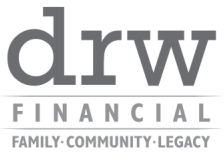|
3/23/2017 who needs investment management?Some folks don't have any investments. Others are in a situation where their circumstances dictate a very "keep it simple" approach. But for much of the rest the population, there may be value in working alongside a professional investment manager in pursuit of an "optimal" investing approach for their specific needs. we follow a fee-only, "fiduciary" approachDRW Financial offers investment management solely on a fee-only basis and as a Registered Financial Adviser. This means our only compensation comes from providing advice, not by commissions on transactions. We believe this allows us to offer that advice with fewer conflicts of interest and to act as a fiduciary for our clients. do you have...?
These are a few examples of issues and areas where we have helped others improve their understanding and their approach to investing. DRW Financial works with artists and engineers, physicians and educators, "millenials" and retirees. are we a fit?For a quick and "no cost" consultation to evaluate our "fit" for working with you on investment management, email [email protected]
3/23/2017 do you need financial planning?"I don't have any finances to plan"I hear this pretty regularly. And I get the humor. The reality is that there are valuable opportunities for most people (or families) in going through the process of financial planning. And it is a process; done well, this process can lead to some very positive outcomes:
DRW Financial offers financial planning services on a flat fee basis. This means that there is an agreement upfront to address a given scope and scale of planning, and a stated fee that covers a full calendar year of work and revisions to that plan.
3/20/2017 estimated tax payments?For many people, paying income taxes is something that happens "automatically" with every paycheck, via the mechanism of payroll deductions. Line items like Social Security, Medicare, and an approximate amount of income taxes owed come out of each paycheck, and the process of completing and filing a tax return in April of the next year results in a reconciliation of that process: did the taxpayer pay "too much" or "too little" over the course of the year, and do they get a refund or a bill for taxes due? for the self-employed, and...But for folks who earn income "on the side" or are self-employed, payroll deductions are far less common. For many people in this scenario, the typical approach is to pay "quarterly estimated taxes" via the IRS form 1040 ES. The general idea here is that the taxpayer will figure out what they are likely to owe for the full year, and make four equal payments by the quarterly deadlines. In reality, for many self-employed people their income does not come in conveniently steady streams, and accurately forecasting their full year income can be difficult. For people in that situation, it may be necessary to make adjustments along the way to get the cumulative tax payments close to the right amount. "gig economy", "side hustles", investments...Even for people who get most of their regular income from a salary or W2 paycheck, there may be a need to consider making 1040 ES payments. Drive Uber for extra cash? Rent out a room on AirBnB? Realize some significant investment gains? All of these could potentially raise the tax liability for the year; if the amount paid in along the way is too low, there could be a penalty in addition to the eventual tax owed. the next due date: april 18, 2017If any of the above applies to your situation, get ready for the first 2017 quarterly due date in mid April. If this date seems familiar, it's because that's the 2016 personal return filing deadline too!
3/20/2017 social security insightsIf you belong to the portion of the population aged 60 or older, you have probably given a good bit of thought to Social Security; if you are much younger than that, the concept is probably not high on your current list of priorities. But as a financial planner and investment adviser, I routinely find that the various benefits available via the Social Security Administration are an important and often misunderstood part of folk's financial picture. it's your money, coming backOne thing to understand upfront is that almost everyone earning income in the United States pays a tax into the Social Security fund throughout their earning years. Although Social Security benefits are sometimes described as "entitlements" in a way that suggests otherwise, the money that retirees get back comes primarily from their own contributions and those of their peers and the generations preceding / following them. spouses and kids can benefit, tooSome of the benefits available via Social Security are available to spouses and children of the income earner who paid into the system. For instance, in a two parent household if one worked outside the home for a wage and the other spent their working years raising kids and caring for the home, the one without an income history may also qualify for a retirement benefit based on the contributions of the working spouse. check your benefits early and oftenThe Social Security Administration offers a couple of tools that are really very valuable for gaining a basic understanding of where a given person stands in relation to their potential benefits.
|
AuthorDavid R Wattenbarger, president of DRW Financial Archives
June 2022
Categories |

 RSS Feed
RSS Feed
